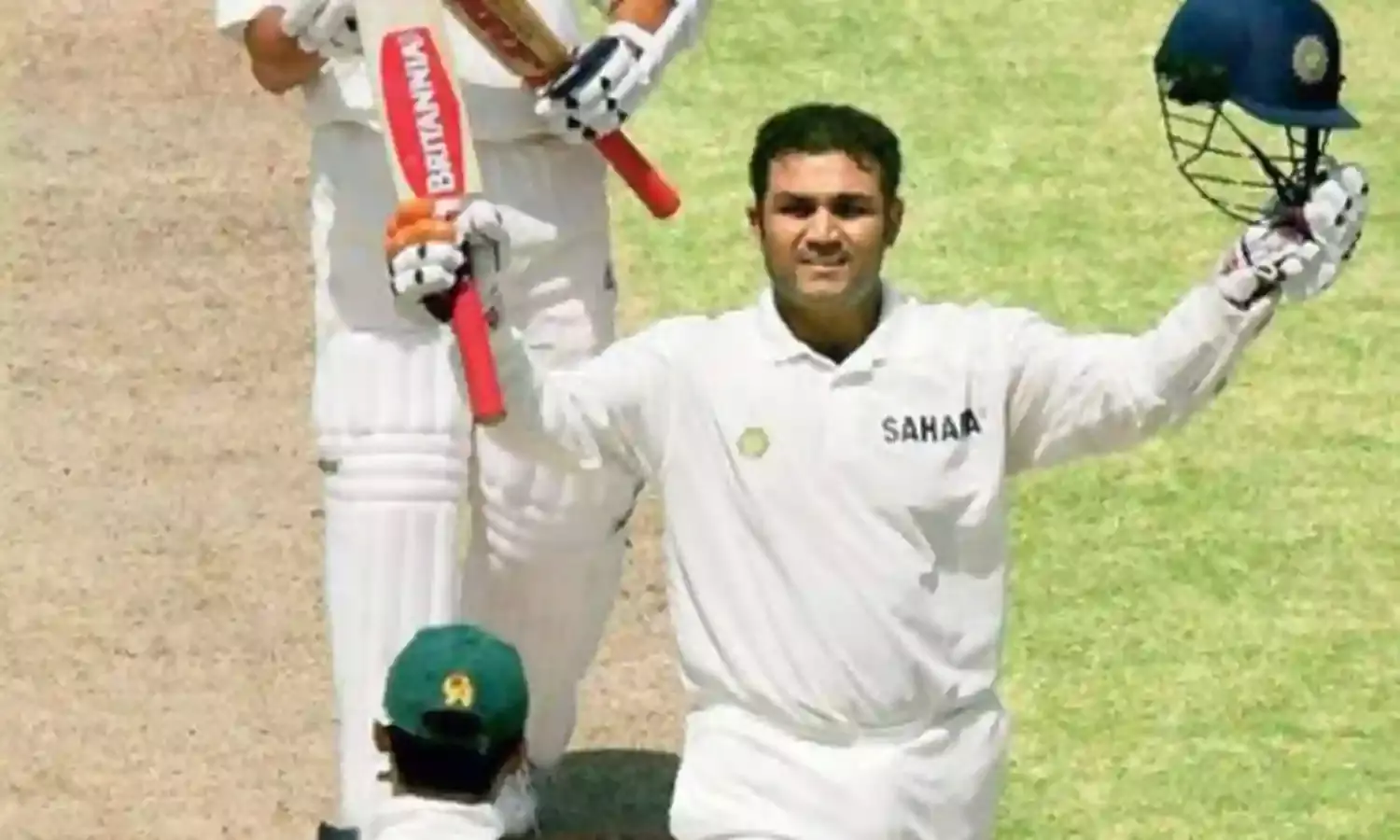When India Finally Won a Test in Pakistan
Down Memory Lane

By March 2004 India had won a Test – or even a Test series – in all countries with which they had traditional contests since 1932 with the exception of Pakistan.
South Africa was the other country in which India had not won a Test but contests between the two countries had commenced only in 1992 and India had played just nine Tests in South Africa.
In Pakistan on the other hand India had played 20 Tests dating back to their first visit in 1954-55 and had yet to win a match. Over five visits in all India had lost five and drawn 15.
And yet the mood was optimistic when India toured Pakistan in March – April 2004 to play three Tests and five ODIs. For one thing the hype surrounding the series was something that went even beyond normal India – Pakistan matches. It was the first series between the two countries since Pakistan played two Tests and an Asian Test Championship game against India in January – February 1999. More significantly it was the first time India were touring Pakistan since playing a four-Test series in November – December 1989. Interest then was sky high and hundreds of Indian cricket fans crossed the border to see the games.
Amidst all this hype it was reckoned that India had a chance to register their first Test victory in Pakistan in almost 50 years. The Indians had just come back from a successful tour of Australia where they had drawn the four-Test series against the top ranked team 1-1. They were confidence personified and the only factor they had to overcome was the psychological barrier.
The optimistic mood gained momentum when India won the ODI series 3-2. And in the first Test at Multan India took little time to get into an adventageous position thanks to the pyrotechnics displayed by Virender Sehwag. The swashbuckling opener blazed his way to an electrifying 309 becoming the first Indian to score a triple hundred in Tests. After dominating a first wicket partnership of 160 runs with Akash Chopra (42) Sehwag was involved in a 336-run third wicket association with Sachin Tendulkar. By the time he was third out at 509 Sehwag who hit six sixes and 39 fours while negotiating 375 balls had laid the foundation for a huge total. Sehwag reached both his 100 and 300 with a six.
Rahul Dravid stand-in captain in place of the injured Sourav Ganguly ultimately declared at 675 for five – India’s third highest total in Tests - with Tendulkar left high and dry on 194 not out. This led to a controversy with Dravid the subject of much criticism for it was felt he could have extended the innings for an over or two to give Tendulkar the opportunity to get to his 200. Tendulkar too voiced his disappointment but the two then had an honest discussion the following morning which did much to clear the air.
The pitch still remained good for batting but the speed at which the runs had been obtained – over four an over – put Pakistan under pressure and they succumbed after a bright start. Yasir Hameed got 77, skipper Inzamam ul Haq scored 77, Yousuf Youhana and Abdul Razzaq chipped in with useful contributions and Pakistan too maintained a healthy run rate in scoring 364 for five with one over left for the third day. At this stage a draw loomed large but Sachin Tendulkar bowled Moin Khan with the last ball of the day. This proved to be a turning point and Pakistan unaccountably collapsed on the fourth morning. All out for 407 they had to follow on and despite a stroke filled century from Youhana they were doomed to an innings defeat by stumps on the fourth day when they were 207 for nine. The end came early on the final morning with Anil Kumble finishing with six for 72 as India sealed a historic win by an innings and 52 runs.
It had been a long wait – their 21st Test before registering their first victory in Pakistan. But India went one better. After losing the second Test at Lahore by nine wickets, India set the seal on their supremacy by winning the third Test at Rawalpindi by an innings and 131 runs with a day to spare to clinch the series and this was something that even the most optimistic Indian cricket supporter could not have envisaged.



